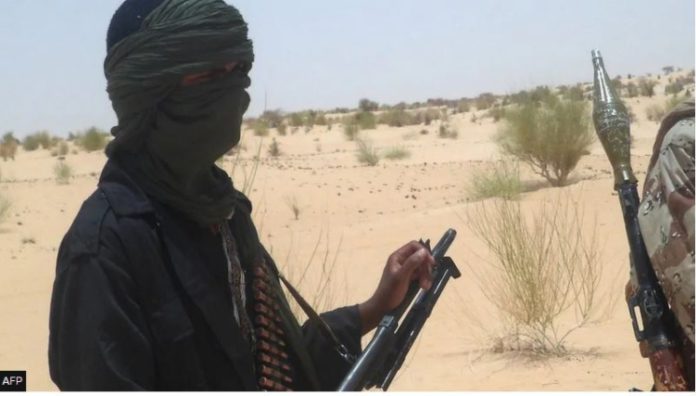
Niger, Mali, and Burkina Faso have declared their intention to establish a joint force aimed at combating the threat posed by jihadist groups within their borders.
The announcement was made by Niger’s Army chief, Moussa Salaou Barmou, during a televised address in Niamey on Wednesday, following discussions between the three nations.
While specific details regarding the size and operational framework of the joint force were not provided, it is evident that the escalating activities of groups affiliated with both Islamic State and al-Qaeda have prompted this collaborative effort.
These extremist organizations have inflicted significant casualties in the region over the past year, necessitating a coordinated response.
In recent months, the military administrations of Niger, Mali, and Burkina Faso have been forging closer ties, culminating in the establishment of the Alliance of Sahel States (AES) last September.
This mutual defense pact superseded their involvement in the international G5 force and underscores their commitment to addressing the security challenges within the Sahel region.
Despite assurances from the military regimes to confront the decade-long conflict with jihadist elements, violence in the Sahel has persisted and even intensified in recent years.
The withdrawal of French military presence, along with the termination of UN peacekeeping mission Minusma in Mali, has left a void that these nations are endeavoring to fill through strengthened ties with Russia.
Moreover, the decision to exit the West African economic bloc ECOWAS signifies a significant shift in geopolitical alignments.
Although the military regimes had faced suspension and sanctions from ECOWAS, recent efforts towards dialogue have led to the partial lifting or easing of some sanctions.
ALSO READ:
National Cathedral: NPP reacts after NDC MPs symbolic commissioning
We are not mocking God – NDC MPs after ‘commissioning’ uncompleted National Cathedral [listen]
We have a longstanding relationship with Ghana despite passage of the Anti-Gay Bill – World Bank






